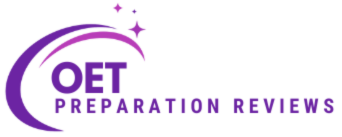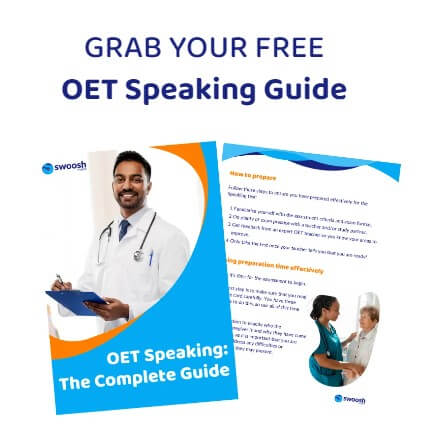A very common question: Is OET Easier than IELTS?
While some suggest that Occupational English Test (OET) might be easier than International English Language Testing System (IELTS) due to its medical-specific content and relevance for healthcare professionals.
It is essential to understand that both exams demand a similar level of English proficiency.
The perceived difficulty of either test largely depends on an individual’s background and experience.
For those in healthcare who are accustomed to communicating in English within medical contexts, the OET may feel more straightforward as it aligns closely with their daily tasks and responsibilities.
This alignment can improve focus and attention, increasing the likelihood of success.
Ultimately, choosing between OET and IELTS should be based on which exam best suits your professional needs and language skills.
To really know if OET Easier than IELTS, let’s look at the key differences.
Understanding the OET
The OET is specifically designed for healthcare professionals.
There are 4 sub-tests: listening, reading, writing and speaking, tailored to medical contexts.
For example:
- Listening: Tasks involve understanding patient consultations and health-related presentations.
- Reading: Includes comprehending medical texts, such as journal articles and patient case notes.
- Writing: Requires writing referral letters or discharge summaries based on case notes.
- Speaking: Consists of role-plays simulating real-life interactions with patients or colleagues.
Understanding the IELTS
The IELTS assesses general English proficiency and is divided into two versions:
Academic and General Training.
The Academic version is often required for higher education and professional registration, while General Training is typically for migration purposes.
The four sub-tests—Listening, Reading, Writing, and Speaking—cover a wide range of topics:
- Listening: Involves conversations and monologues from various contexts, not limited to healthcare.
- Reading: Includes articles, advertisements, and diagrams from newspapers and magazines.
- Writing: Requires writing essays or letters on a variety of topics.
- Speaking: Consists of a face-to-face interview covering everyday topics and general opinions.
Key Differences
1. Relevance to Profession:
-
OET: Directly relevant to medical professionals, focusing on workplace scenarios.
-
IELTS: More general, covering a broad range of topics not specific to any profession.
2. Content Familiarity:
-
OET: Uses medical vocabulary and scenarios that healthcare professionals encounter daily.
-
IELTS: Uses a wider array of topics, which may be less familiar to medical professionals.
3. Purpose:
-
OET: For healthcare professionals seeking registration or employment in English speaking countries.
-
IELTS: Widely accepted for education, migration and professional registration.
Looking For OET or IELTS Preparation Support?
Regardless of the exam you select, self-study can be a challenging path—76% of students find themselves retaking their exams.
Having expert feedback and guidance is vital for achieving success.
These resources help pinpoint your weaknesses and offer the necessary insights for improvement.
We highly suggest looking into the Swoosh English courses to effectively begin your preparation.
Conclusion
So, is OET Easier than IELTS?
The difficulty of the Occupational English Test (OET) compared to the International English Language Testing System (IELTS) largely depends on your background and profession.
The OET is tailored specifically for healthcare professionals, incorporating medical scenarios and terminology that are familiar to those in the field, which can make the test seem more relevant and approachable.
In contrast, IELTS is a general English proficiency exam used for various purposes, such as university admissions and immigration. It covers a wide range of topics that may be less familiar to some test-takers, potentially making it feel more challenging.
Ultimately, neither test is inherently easier; it really depends on your strengths and familiarity with the material.
For healthcare professionals, the OET may feel more suitable and manageable, while the IELTS could be the better option for those seeking broader opportunities.





